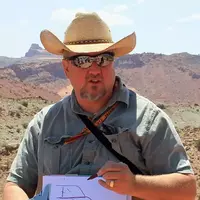Applying the ICAP Theory of Cognitive Engagement to Active Geoscience Learning
Conveners
 Cathy Cullicott, Arizona State University at the Tempe Campus
Cathy Cullicott, Arizona State University at the Tempe Campus
 Steven Semken, Arizona State University at the Tempe Campus
Steven Semken, Arizona State University at the Tempe Campus
While research supports the use of active learning methods in teaching geoscience and other STEM courses, determining what constitutes "active learning" is a challenge to incorporating more such methods. The ICAP Theory of Cognitive Engagement, developed by Michelene Chi of Arizona State University, addresses this by characterizing active learning in terms of the degree of student cognitive engagement with content, with interactive engagement > constructive engagement > active engagement > passive engagement for increasing student learning outcomes. By observing student behaviors, instructors can use ICAP to assess the engagement (and therefore active learning) level of their students. The ICAP framework informs design of new active-learning strategies while also allowing traditionally "passive" practices to be readily recast in ways that promote more active student learning. In this mini-workshop the co-leaders, pioneers in action research on ICAP in geoscience education, will introduce the theory and its base of research support, then guide participants in brief exercises and discussion to foster application of ICAP to their own curriculum design and teaching practice.
All mini-workshops will take place online, via Zoom (unless otherwise noted). Participants will be sent links to the Zoom room and connection info will be posted below prior to the session start.
Session Connection Info
This session has already taken place
Goals
By the end of this workshop, participants will:
- Become familiar with the ICAP theory of Chi & Wylie and its bases of theoretical and research support.
- Analyze commonly used active-learning methods for geoscience teaching through the lens of the ICAP framework.
- Explore potential applications of the ICAP theory in their own teaching.
Program
NOTE: times are in PT - adjust for your time zone
1:30 Welcome, introductions, pre-survey
1:45 Introduction to the ICAP theory and its four modes
1:55 Exercise on classifying active-learning strategies according to the ICAP framework, and discussion
2:10 Overview of ICAP theory and its theoretical and research bases
2:30 Case study of ICAP application to teaching geoscience
2:45 Break
3:00 Roundtable discussion of application of ICAP to participants' teaching activities and curricula
3:45 Wrap-up and workshop evaluation
4:00 Adjourn
Resources
Slides
Workshop Slides (Acrobat (PDF) 1.7MB Jul16 20)
ICAP Theory
The ICAP Framework: Linking Cognitive Engagement to Active Learning Outcomes—Chi, M. T. H., & Wylie, R. (2014). Educational Psychologist, 49,219-243.
Dialogue Patterns in Peer Collaboration that Promote Learning—Chi, M. T. H., & Menekse, M. (2015). In L. B. Resnick, C. Asterhan, & S. N. Clarke (Eds.), Socializing Intelligence Through Academic Talk and Dialogue (pp. 263-274). Washington, DC: American Educational Research Association.
Translating the ICAP Theory of Cognitive Engagement into Practice—Chi, M. T. H., Adams, J., Bogusch, E. B., Bruchok, C., et al. (2018). Cognitive Science, 42, 1777-1832.
Table of Instructional Verbs Classified by ICAP Mode, from Chi et al. (2018). (Acrobat (PDF) 83kB Jul8 20)
The ICAP Active Learning Framework Predicts the Learning Gains Observed In Intensely Active Classroom Experiences—Wiggins, B. L., Eddy, S. L., Grunspan, D. Z., & Crowe, A. J. (2019). AERA Open, 3, 1-14.
Chi Learning and Cognition Lab at ASU
Other
For exercise on classifying active-learning strategies by ICAP: Instructional Utility and Learning Efficacy of Common Active Learning Strategies—McConnell, D. A., Chapman, L., Czajka, C. D., Jones, J. P., Ryker, K. D., & Wiggen, J. (2017). Journal of Geoscience Education, 65, 604-625.
InTeGrate STEP Center: Build Interdisciplinary Connections
Pedagogy in Action Resources for Interdisciplinary Teaching:
